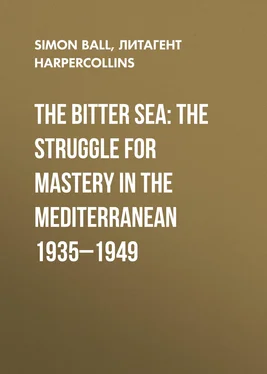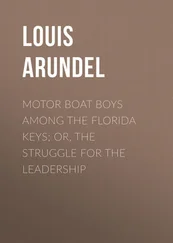Poor Paul, Chips had never had anything to offer other than love and diamond-encrusted knick-knacks. The British government had ignored his Mediterranean progress and had then brushed it aside. Chips’s very pointlessness was not, however, without ultimate effect. ‘This stinks’, the Regent had shouted in a moment of rage, ‘of Anthony.’ The name of the villain that rang around the Palace was not Churchill but his newly appointed Foreign Secretary, their old undergraduate sparring partner Anthony Eden. Many in the Mediterranean attributed to Eden more power than perhaps he ever possessed. Eden was not unhappy to play upon this impression. He wanted to make a splash as soon as possible. Churchill was keen that his choice should have a chance to show his quality, and what better stage than the Mediterranean. Nothing could be achieved with an effete nobody like Chips, but perhaps an effete somebody could transform the situation. Eden, it was agreed, should not just issue instructions to the Mediterranean but should take himself there for as long as was necessary to enforce the government’s will.
The mission was attractive. Eden would be greeted with the bouquets of victory. Somerville was ordered to take Force H and bombard the Italian mainland. He laid a bet. If the mission was a success Churchill and Eden would take the credit, if the Italians sunk one of his capital ships the fiasco would be blamed on the incompetence of the navy in the Mediterranean. It was a win-win bet. His unseen approach on Genoa was a masterpiece of naval operational art. The bombardment of the city was indeed claimed as triumph of political daring in London. 20 The impression was not much different in Rome and Berlin. The general whom Hitler had dispatched to lead his forces in Tripoli, Erwin Rommel, arrived in Rome as the British shells hit Genoa. 21 ‘The Duce’s popularity is approaching zero level,’ went back the word to Germany. 22
At the same time as the navy landed a direct blow on Italy, the army maintained their extraordinary progress along the coast of Cyrenaica. Tobruk, Derna, Benghazi: in each of the fortified Italian coastal towns the pattern was the same. Imperial troops would breast a rise to see a neatly whitewashed settlement set against the sea. They would admire the skill of the Italian artillerists who opposed them, then the defence would crumble. Within the day the town would be in their hands, albeit thoroughly looted by the indigenous population. It was thus settled that Eden would ‘stop at Benghazi and run over to the Balkans’. What he would do when he reached the Balkans was less clear. Some, such as his travelling companion, the CIGS, Sir John Dill, thought his mission was to persuade Turkey into the war. Others argued that the mission was all about Greece. The dictator Metaxas had listened sceptically to Wavell’s blandishments but had then unexpectedly keeled over, dead. Greece’s confused politicians might now be biddable. Eden was told to fly in, scout out the situation and try and make the best of it. 23

In the end Eden didn’t make it to Benghazi. Flying into a headwind his plane almost ran out of fuel. It landed on Malta in the middle of an air raid, diverted to Crete and finally touched down outside Cairo on 19 February 1941. 24 Despite the difficult journey, Eden came down the steps ‘in his usual excellent form. He had every right to feel cheerful–his timing seemed impeccable. 25
As Churchill had suspected, the arrival of Eden in Cairo made it very difficult for the military commanders to object too vociferously to the idea of cashing in on the gains made in Cyrenaica. They signed up to the idea of projecting British power north across the Mediterranean. Wavell, Cunningham and Longmore each said a piece on the practical difficulties involved, but lodged no objection in principle. There was none of the outspokenness to which more junior visitors had been treated. When Channon had been in Cairo, Longmore had described Churchill as an adventurer, criticized his grasp of strategy and had ascribed their success up to that point to a mixture of luck and bluff. 26 Eden, on the other hand, was able to report a remarkable degree of unity amongst all the political, diplomatic and military leaders gathered in Cairo. They agreed that they would look north instead of south-east, towards Abyssinia, or west, towards Tripoli. They agreed that if they were looking north it should be towards Greece rather than towards Turkey The dream of whipping up the Turks remained strong for some, but the consensus was that the Turks would do what they always did, make nice noises but play the sides off against one another. In any case there was a limit to the military aid that could be sent north and Greece, unlike Turkey, was under immediate threat. They signed up to the statement that if everything was thrown into assisting the Greeks as quickly as possible then there was a ‘fair chance’ of preventing the country being overrun. 27
Armed with this assessment Eden left Cairo for Athens. There was, however, a difference between what appeared in formal statements and the private thoughts of those involved. The Greek decision was in one sense easy to make. Eden provided a very firm political steer. It was thus ‘respectable’ to sign up. At the same time the bullish statements emanating from Cairo, and the impression that the men on the ground were gung-ho for intervention stilled any qualms that might be felt in London. In their heart of hearts, however, most of those who discussed the problem feared that ‘we must eventually be beaten there’. 28 There was for the moment, however, a conspiracy of optimism. In Athens, Eden and his entourage gave no sign of any doubts they might have felt about the enterprise–even though they concluded whilst they were there that Yugoslavia was likely to side with the Germans and that Salonika–the Aegean terminus of the railway line that ran from central Europe to the Mediterranean–was indefensible.
Immediately on his return from Athens, Eden flew out to Adana near Turkey’s Mediterranean coast, boarding a train for Ankara. He reached the Turkish capital on 26 February. The Turks reacted just as expected. They said they would on no account aid Greece. They would fight only if attacked. Yet Eden sent home ‘jaunty and self-satisfied’ telegrams that talked of the ‘frankness’ and ‘friendliness’ and the ‘realism’ of the Turks. Had, some wondered, his head been turned by the welcome choreographed by Ataturk’s heirs? As his train pulled into Ankara, Eden had stood in the transparent observation car at the end of the train. The huge crowd assembled to meet him had climbed onto the railway lines and thronged round the carriage trying to catch sight of the visitor, cheering his triumphal entry. 29 The truth was that the Turks wouldn’t do ‘a damned thing’. 30 Having completed his mission in Turkey to his own–if no one else’s–satisfaction, Eden returned to Athens on 2 March. There he presided over the signature of a formal military aid agreement by Dill and his Greek opposite number, Alexander Papagos. Whilst this document was finalized in Athens, Prince Paul of Yugoslavia was having a deeply disturbing meeting with Hitler in Austria. He was told that the day had come when he must openly ally with the Nazis.
There can be little doubt that Eden’s mission in the Mediterranean achieved exactly what he and Churchill had intended from the outset. He had marshalled the military in such a way that no one could subsequently claim that either of them were dangerous adventurers–the charge of the 1930s, still heard sotto voce, amongst many Conservatives. He had ensured that Greece rather than Turkey would be the focus of British efforts on the northern shore. He had achieved a firm military agreement. All of this news was received with much tut-tutting in London. Eden had, it seemed, demonstrated that if you let a man off the leash in the Mediterranean, particularly in the east, he would soon be running his own show without regard for higher authority. In Greece as in Turkey, it was said, Eden’s head had been turned by the obsequies of his hosts. British policy had become a vanity. ‘He has’, the Cabinet agreed, ‘really run rather ahead of his instructions and agreed to things which the Greeks will take as commitments.’ 31
Читать дальше













